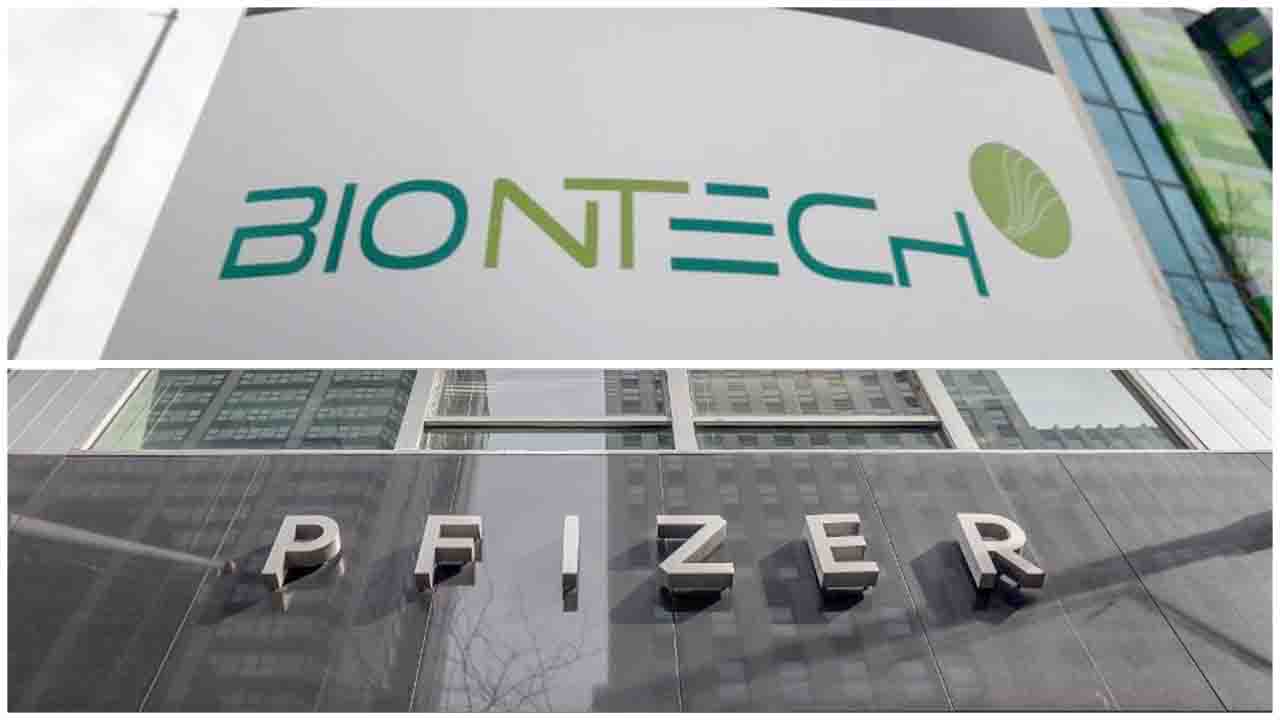Pfizer Inc. and BioNTech SE today announced preliminary data from the most advanced of four investigational vaccine candidates from their BNT162 mRNA-based vaccine program, Project Lightspeed, against SARS-CoV-2, the virus causing the current global pandemic. The BNT162 program is evaluating at least four experimental vaccines, each of which represents a unique combination of mRNA format and target antigen and is concurrently undergoing scientific peer-review for potential publication. Overall, the preliminary data demonstrated that BNT162b1 could be administered in a dose that was well tolerated and generated dose-dependent immunogenicity, as measured by RBD-binding IgG concentrations and SARS-CoV-2 neutralizing antibody titers.
“We are encouraged by the clinical data of BNT162b1, one of four mRNA constructs we are evaluating clinically, and for which we have positive, preliminary, topline findings,” said Kathrin U. Jansen, Ph.D., Senior Vice President and Head of Vaccine Research & Development, Pfizer. “We are dedicated to develop potentially groundbreaking vaccines and medicines, and in the face of this global health crisis, we approach this goal with the utmost urgency. We look forward to publishing our clinical data in a peer-reviewed journal as quickly as possible.”
“These preliminary data are encouraging in that they provide an initial signal that BNT162b1 targeting the RBD SARS-CoV-2 is able to produce neutralizing antibody responses in humans at or above the levels observed in convalescent sera – and that it does so at relatively low dose levels. We look forward to providing further data updates on BNT162b1,” said Ugur Sahin, M.D., CEO and Co-founder of BioNTech.
The ongoing U.S. Phase 1/2 randomized, placebo-controlled, observer-blinded study is evaluating the safety, tolerability, and immunogenicity of escalating dose levels of BNT162b1. The initial part of the study included 45 healthy adults 18 to 55 years of age. Preliminary data for BNT162b1 was evaluated for 24 subjects who received two injections of 10 µg and 30 µg, 12 subjects who received a single injection of 100 µg, and 9 subjects who received 2 doses of a placebo control.
The participants received two doses, 21 days apart, of a placebo, 10 µg or 30 µg of BNT162b1, or received a single dose of 100 µg of the vaccine candidate. Because of a strong vaccine booster effect, the highest neutralizing titers were observed seven days after the second dose of 10 µg or 30 µg on day 28 after vaccination. The neutralizing GMTs were 168 and 267 for the 10 µg and 30 µg dose levels, respectively, corresponding to 1.8- and 2.8-times the neutralizing GMT of 94 observed in a panel of 38 sera from subjects who had contracted SARS-CoV-2.
In all 24 subjects who received 2 vaccinations at 10 µg and 30 µg dose levels of BNT162b1, the elevation of RBD-binding IgG concentrations was observed after the second injection with respective GMCs of 4,813 and 27,872 units/ml at day 28, seven days after immunization. These concentrations are 8- and 46.3-times the GMC of 602 units/ml in a panel of 38 sera from subjects who had contracted SARS-CoV-2.
On day 21 after a single injection, the 12 subjects who received 100 µg of BNT162b1 had an RBD-binding IgG GMC of 1,778 units/ml and a SARS-CoV neutralizing GMT of 33, which are 3-times and 0.35-times, respectively, the GMC and GMT of the convalescent serum panel.
At the 10 µg or 30 µg dose levels, adverse reactions, including low-grade fever, were more common after the second dose than the first dose. Following dose 2, 8.3% of participants who received 10 µg and 75.0% of participants who received 30 µg BNT162b1 reported fever ≥ 38.0 °C. Local reactions and systemic events after injection with 10 µg and 30 µg of BNT162b1 were dose-dependent, generally mild to moderate, and transient. The most commonly reported local reaction was injection site pain, which was mild to moderate, except in one of 12 subjects who received a 100 µg dose, which was severe. No serious adverse events were reported. Given higher numbers of subjects experiencing local reactions and systemic events after a single 100 µg dose with no significant increases in immunogenicity compared to the 30 µg dose level, the 12 participants in the 100 µg group were not administered a second dose.
These preliminary data, together with additional preclinical and clinical data being generated, will be used by the two companies to determine a dose level and select among multiple vaccine candidates to seek to progress to a large, global Phase 2b/3 safety and efficacy trial. That trial may involve up to 30,000 healthy participants and is anticipated to begin in late July 2020, if regulatory approval to proceed is received. The preliminary clinical data from this ongoing study have been submitted for potential publication in a peer-reviewed journal and is available on an online preprint manuscript server.
The BNT162b1 candidate remains under clinical study and is not currently approved for distribution anywhere in the world. If the ongoing studies are successful and the vaccine candidate receives regulatory approval, the companies expect to manufacture up to 100 million doses by the end of 2020 and potentially more than 1.2 billion doses by the end of 2021. In that event, BioNTech and Pfizer would work jointly to distribute the potential COVID-19 vaccine worldwide (excluding China, where BioNTech has a collaboration with Fosun Pharma for BNT162 for both clinical development and commercialization). The development of the vaccine is also supported by partners like Acuitas Therapeutics. The Canadian company provides lipid nanoparticles (LNP) for the formulation of various mRNA vaccines.

 Pfizer and BioNTech announces positive human trial results for their COVID vaccine candidate
Pfizer and BioNTech announces positive human trial results for their COVID vaccine candidate



























.jpg)





